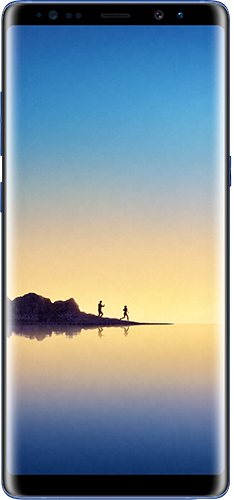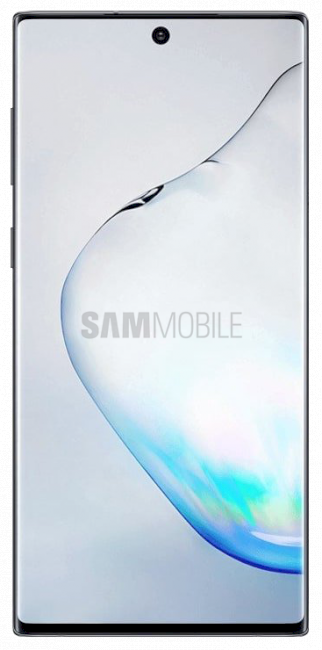Smartphone innovation has slowed down in the last couple of years, making upgrades incremental and of questionable value. The just-launched Galaxy Note 10 and Note 10+ fall into the same category. On their own, they are an impressive feat of engineering, but when compared to their predecessors, the changes seem far less exciting and expensive.
This is particularly true in case of the Galaxy Note 9 customers looking to upgrade to the Note 10. But what about Note 8 users? Does it make sense for them to upgrade to the latest Galaxy flagship? The answer is yes for the Note 10+ and debatable for the regular Note 10, as evident from the spec comparison table below.
The Galaxy Note 10+ is better than the Note 8 in almost all aspects. We say almost because the older model has a headphone jack and a notch-free screen, which some might find more important than all the improvements the latest flagship brings to the table. If you can live with that and can afford the premium price, the Note 10+ offers a bigger screen, increased RAM and storage, better cameras, super-fast charging, bigger battery, more powerful chipset, and more.
The upgrade path from the Note 8 to the standard Note 10, on the other hand, is not so straightforward. Despite the high price, the latter comes with a lower-resolution display and lacks a headphone jack and a MicroSD slot. Of course, the regular Note 10 offers substantial improvements in other areas, but customers are better off paying the premium and opting for the uncompromising Plus variant instead.
For more information on the Galaxy Note 10 and Galaxy Note 10+, check out our devices section. Also, see our initial impressions of the two phones in our hands-on article and tell us if you’re pondering an upgrade to either of these new flagships from your Galaxy Note 8 down in the comments!
Galaxy Note 8 vs Galaxy Note 10 vs Galaxy Note 10+
| Galaxy Note 8 | Galaxy Note 10 | Galaxy Note 10+ | |
| Display | 6.3-inch Quad HD+ Infinity, Super AMOLED, 18.5:9, 521 ppi | 6.3-inch, Dynamic AMOLED Infinity-O, 2280×1080 pixels, 19:9, HDR10+ certified | 6.8-inch, Dynamic AMOLED Infinity-O, 3040×1440 pixels, 19:9, HDR10+ certified |
| S Pen | Yes, 4,096 pressure levels | Yes, 4,096 pressure levels, Bluetooth control, 6-axis sensor including gyro and acceleration sensor for gesture control | Yes, 4,096 pressure levels, Bluetooth control, 6-axis sensor including gyro and acceleration sensor for gesture control |
| Processor | Exynos 8895/Snapdragon 835, 64-bit, 10nm | Exynos 9825/Snapdragon 855, octa-core, 7nm, 64-bit | Exynos 9825/Snapdragon 855, octa-core, 7nm, 64-bit |
| RAM | 6GB | 8GB | 12GB |
| Rear Camera | Camera 1: 12-megapixel primary, F1.7, Dual Pixel, OIS
Camera 2: 12-megapixel telephoto secondary, F2.4, 2x optical zoom, OIS |
Camera 1: 12MP, OIS, Dual Pixel autofocus, 4K video recording, F1.5/F2.4
Camera 2: 12MP telephoto, 2x optical zoom, F2.1, OIS, Dual Pixel autofocus Camera 3: 16MP super wide-angle, 123-degree FOV, F2.2 |
Camera 1: 12MP, OIS, Dual Pixel autofocus, 4K video recording, F1.5/F2.4
Camera 2: 12MP telephoto, 2x optical zoom, F2.1, OIS, Dual Pixel autofocus Camera 3: 16MP super wide-angle, 123-degree FOV, F2.2 Camera 4: DepthVision 3D ToF, VGA, F1.4 |
| Front Camera | 8-megapixel, autofocus, f/1.9 | 10MP, F2.2, Dual Pixel (2PD) autofocus | 10MP, F2.2, Dual Pixel (2PD) autofocus |
| Storage | 64GB/256GB internal, microSD slot (up to 256GB) | 256GB/512GB, non-expandable | 256GB/512GB, microSD slot (up to 1TB) |
| Software | Android 7.1.1, upgradeable to Android 9 Pie | Android 9 Pie, One UI 1.5 | Android 9 Pie, One UI 1.5 |
| Battery | 3,300 mAh, fast wired (15W) and fast wireless charging | 3,500 mAh, fast wired charging (25W) and fast wireless charging (12W), reverse wireless charging (PowerShare) | 4,300 mAh, fast wired charging (up to 45W, charger sold separately) and fast wireless charging (15W), reverse wireless charging (PowerShare) |
| Connectivity | Wi-Fi 802.11 a/b/g/n/ac, LTE Cat.16, MU-MIMO, Bluetooth 5.0, ANT+, USB Type-C, NFC, GPS, Galileo, Glonass, BeiDou | 4G LTE (Cat.20), Bluetooth 5.0, Wi-Fi 802.11 a/b/g/n/ac/ax, MU-MIMO, USB Type-C, NFC, GPS, Galileo, Glonass, BeiDou | 4G LTE (Cat.20), Bluetooth 5.0, Wi-Fi 802.11 a/b/g/n/ac/ax, MU-MIMO, USB Type-C, NFC, GPS, Galileo, Glonass, BeiDou |
| Dimensions | 162.5 x 74.8 x 8.6 mm, 195g | 151 x 71.8 x 7.9mm, 168g | 162.3 x 77.2 x 7.9mm, 196g |
| Sensors | Iris sensor, Pressure sensor, Accelerometer, Barometer, Fingerprint sensor, Gyro sensor, Geomagnetic sensor, Hall sensor, Proximity sensor, Heart rate sensor | Accelerometer, Barometer, Ultrasonic fingerprint sensor (in-display), Gyro sensor, Geomagnetic sensor, Hall sensor, Proximity sensor | Accelerometer, Barometer, Ultrasonic fingerprint sensor (in-display), Gyro sensor, Geomagnetic sensor, Hall sensor, Proximity sensor |
| Other features | Samsung Pay, Bixby, IP68 water & dust resistance, AKG earphones, DeX support | AKG earphones, stereo speakers, Dolby Atmos, AR Emoji, Bixby, Samsung Pay, IP68 water & dust resistance, face recognition, Zoom-in MIC, Screen Recorder, AR Doodle | AKG earphones, stereo speakers, Dolby Atmos, AR Emoji, Bixby, Samsung Pay, IP68 water & dust resistance, face recognition, Zoom-in MIC, Screen Recorder, AR Doodle, 3D Scanner |
The post Specs comparison: Galaxy Note 8 vs Galaxy Note 10 vs Galaxy Note 10+ appeared first on SamMobile.
from SamMobile https://ift.tt/2OKlDXC
via IFTTT









ليست هناك تعليقات:
إرسال تعليق